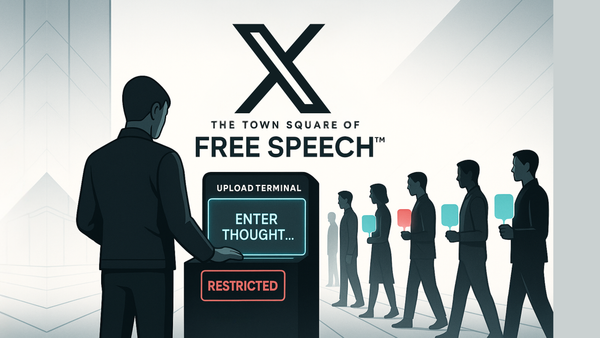Richard Hearts Battle Against Regulatory Overreach
The SEC’s logic would turn pizza into a security if it was purchased with Bitcoin

In the high-stakes legal showdown between Richard Heart and the Securities and Exchange Commission (SEC), the most recent reply brief from Heart's legal team doesn’t just defend a man; it defends the principles of decentralized finance (DeFi) against a regulator accused of overreaching its bounds. This case is more than just a courtroom drama—it's a fight for the future of innovation in the financial world.
At the heart of the legal battle is the SEC's attempt to shoehorn Heart's activities into the traditional securities framework. But as Heart's defense points out, the SEC is like a lumbering giant trying to stomp out a fly with a sledgehammer. The brief criticizes the SEC for its "scattergun approach" to enforcement, suggesting the agency is less interested in protecting investors and more concerned with maintaining control over a rapidly evolving market.
Heart's team paints the SEC as out of touch with the realities of blockchain technology and decentralized finance, labeling the Commission's approach as an attempt to "regulate innovation into submission." The brief argues that the SEC's actions could stifle the very innovation that has made DeFi a beacon of hope in an otherwise rigid financial system. As the brief states, "The SEC’s interpretation of the law would turn every innovative transaction into a securities violation, effectively handcuffing the future of decentralized finance."
The Hero of Decentralized Finance
Richard Heart emerges from this battle not just as a defendant but as a champion of the decentralized finance movement. In the brief, his legal team highlights Heart's contributions to the crypto world, portraying him as a visionary who has dedicated his career to creating financial systems that are free from the grasp of traditional banks and centralized authorities. The document lauds Heart for "pioneering a new era of financial freedom," framing him as a leader who is challenging the status quo.
The brief also underscores the absurdity of some of the SEC's claims, with one line particularly standing out: "The SEC’s logic would turn pizza into a security if it was purchased with Bitcoin." This humorous but pointed critique encapsulates the defense's argument that the SEC is trying to stretch the definition of securities beyond any reasonable interpretation, merely to ensnare Heart.
A Case of Selective Enforcement
The reply brief doesn’t shy away from accusing the SEC of selective enforcement, suggesting that the agency is picking and choosing targets to set an example, rather than applying the law evenly. Heart's defense argues that the SEC's case is built on shaky ground, with little regard for the realities of how decentralized finance operates. "The SEC is attempting to punish innovation rather than protect investors," the brief claims, further asserting that the agency’s actions could have a chilling effect on the entire crypto space.
The Legal Dream Team: Heart's Defense
Backing Richard Heart in this monumental legal battle is one of the most formidable law firms in the world—Quinn Emanuel Urquhart & Sullivan, LLP. Often dubbed ‘the most feared law firm in the world,’ Quinn Emanuel is renowned for its expertise in complex litigation and its track record of taking on and defeating some of the most powerful entities globally. This firm has a reputation for being aggressive, strategic, and exceptionally skilled at navigating high-stakes cases, particularly those involving financial regulation and white-collar defense.
Quinn Emanuel is not just any law firm; it’s a powerhouse with a history of winning cases that seemed unwinnable, thanks to its team of legal experts who are unafraid to challenge the status quo. The firm’s involvement in Heart’s case signals that this is not just a legal defense—it’s a full-scale offensive against the SEC’s approach to regulating decentralized finance.
By choosing Quinn Emanuel, Heart has made it clear that he is prepared to challenge the SEC on every front, leveraging the firm’s unparalleled expertise to defend not only his own actions but the broader principles of innovation and freedom in the financial world.
A Turning Point for Crypto and Regulation
This case could be a watershed moment for the crypto industry. If the SEC prevails, it could set a precedent that allows the agency to exert control over every aspect of decentralized finance, effectively stifling innovation. But if Heart triumphs, it could be a victory not just for him but for the entire crypto community—a reaffirmation that decentralized finance is here to stay and cannot be easily co-opted by traditional regulatory frameworks.
Richard Heart stands as a hero in this narrative, a man willing to take on the might of a government agency in defense of a financial revolution. The SEC, by contrast, risks being seen not as a protector of investors, but as a force trying to smother the innovation that could democratize finance on a global scale.
As the case progresses, the world watches closely. This is not just a legal battle; it’s a fight for the future of finance. And in this fight, Richard Heart might just be the hero we all need.





